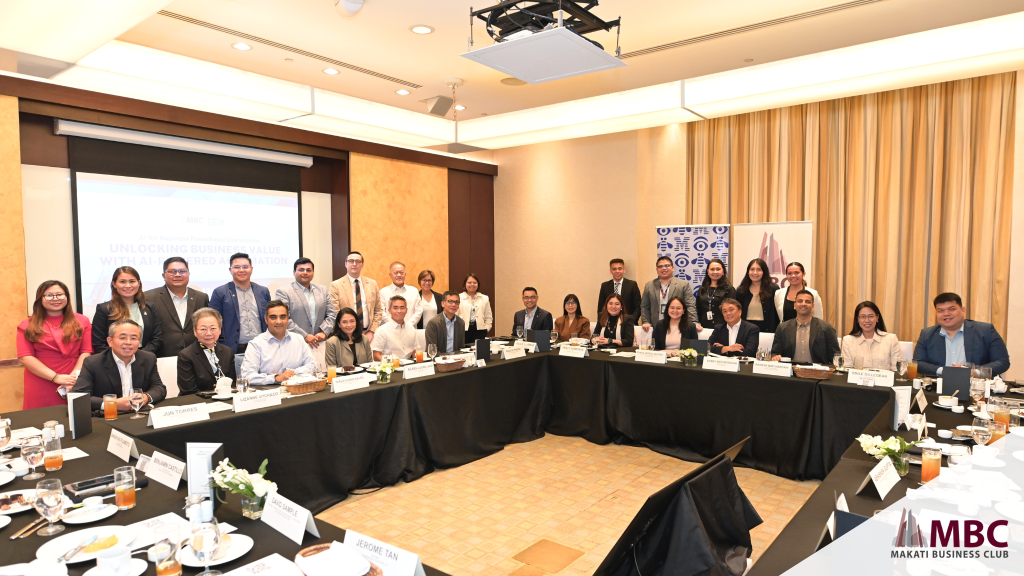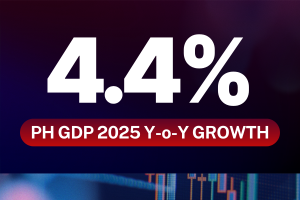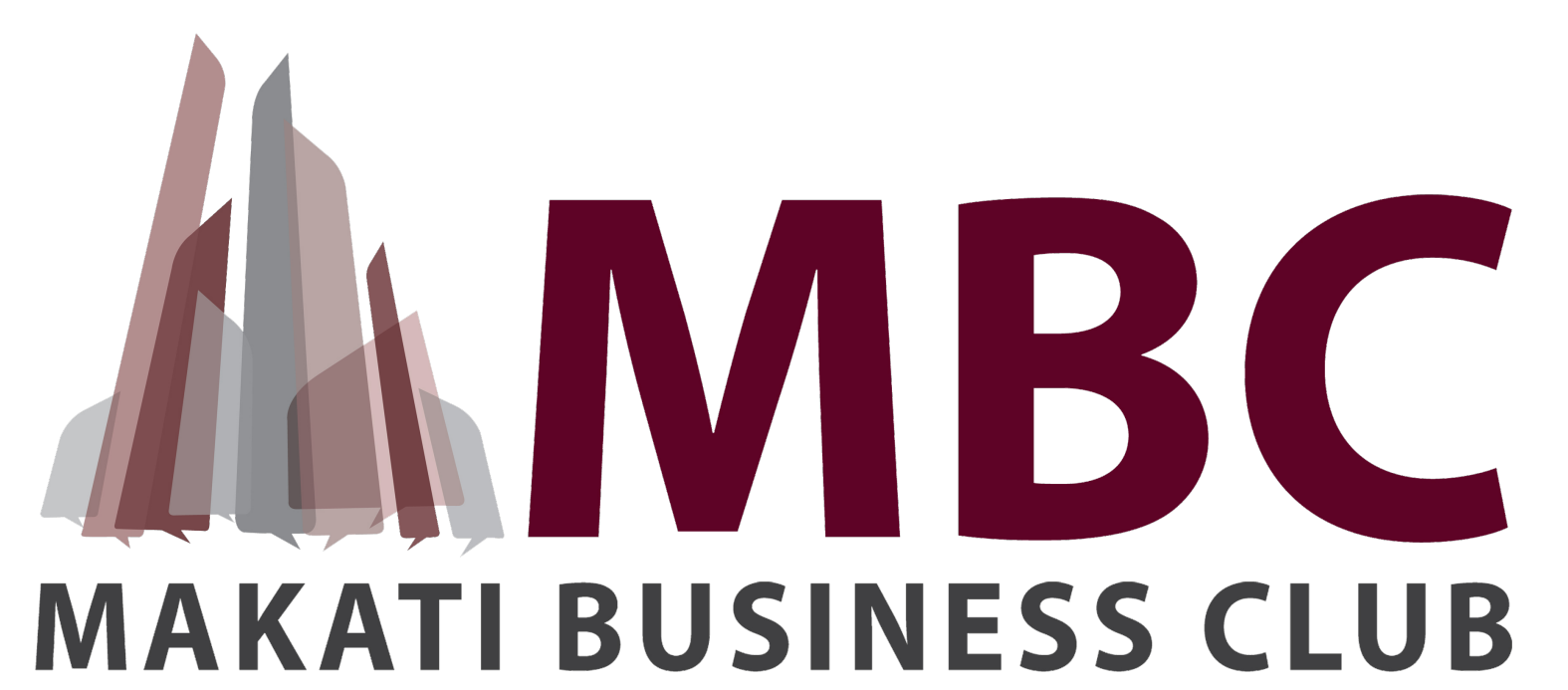AI as an Asset: Tracing and Evaluating Business Returns

18 September 2024 – Tarun Kumar Kalra, VP and Head of Sales (APAC) of Apptio, an IBM Company, led the discussion on AI-powered automation and how MBC members and partners can drive a culture of responsibility and accountability for their technology spending.
This session is part of MBC and IBM Philippines’ three-part roundtable discussion series, “Artificial Intelligence (AI) for Business,” which features global leaders from IBM’s overseas offices. The first two sessions focused on AI governance and securing data in the AI world.
“Technology remains a cost center where all other departments come and ask for requests which have no traceability to return on investment,” said Kalra. A common issue businesses face today is determining the return on investment of the allocated budget for technology because there is a lack of transparency and availability of data that can show their exact costs and benefits.
David Sample, IT Specialist for Finance and Budget at the Asian Development Bank (ADB), joined Kalra and IBM Philippines President and Country Manager Aileen Judan-Jiao for a fireside chat to share his organization’s experience automating IT planning and cost transparency.
The increasing investment in technology raises questions about how businesses can trace and evaluate their return on investment. How can companies identify where their money is spent, what use cases are prioritized, and how these investments are monetized? Business leaders must improve transparency and traceability and create dollar-cost accountability within the organization.
“These are very important elements in driving more visibility, improving forecasting, and enabling benchmarking,” Kalra explains, underscoring the importance of technology business management in making data-driven decisions.
Sample shared that his organization has leveraged Technology Business Management tools to enhance its IT department’s financial management. By transitioning from manual spreadsheets to a centralized system that delivers consistent and reliable financial data, ADB has established a more disciplined monthly budgeting cycle and improved the IT department’s financial oversight and cost transparency “
Judan-Jiao highlighted the importance of using and understanding the right AI model for different business needs. “One of the biggest pitfalls, especially for some of you getting your teams on AI is understanding the right way to select the AI model. The AI model is hard to understand but what it translates to us business leaders is cost. It’s important to understand the right model and the type of data you use. If it’s trained on anything and everything, that’s a lot of spam,” she emphasized.
AI has rapidly transformed the playing field for businesses worldwide. While AI and automation can be leveraged to address a company’s needs, such as enhancing decision-making and cost optimization, as in the case of Apptio, it is crucial to be selective in pursuing them. Companies must identify whether AI is the right solution for solving a certain problem, a point emphasized during the March session. As Kalra said, “AI is real but many things can be resolved by basic automation itself first.”
Apptio, an IBM company, is a leader in technology business management and financial operations. It is a platform that aids organizations in identifying better value for technology investments. One of MBC’s advocacies is advancing the digital economy in the Philippines. Through these roundtable discussions with global technology experts, MBC and its partner, IBM Philippines, aim to help businesses in the country stay up-to-date and competitive in a rapidly changing, digitally-driven marketplace.

PH Economy Grew at 4.4% in 2025, Lowest Post-Pandemic Growth Recorded
PH Economy Grew 4.4% in 2025; Lowest Post-Pandemic Growth Recorded 29 January 2026 — Philippine Gross Domestic Product grew by 3.0% in the fourth quarter

Lessons from 2025: Clean Governance is Good Economics
Lessons from 2025: Clean Governance is Good Economics 26 January 2026 – 2025 started off with a major controversy surrounding the National Budget, which had

Statement on the 2026 General Appropriations Act
Statement on the 2026 General Appropriations Act 05 January 2026 – The 2026 General Appropriations Act, signed today by the President, represents an improvement compared
